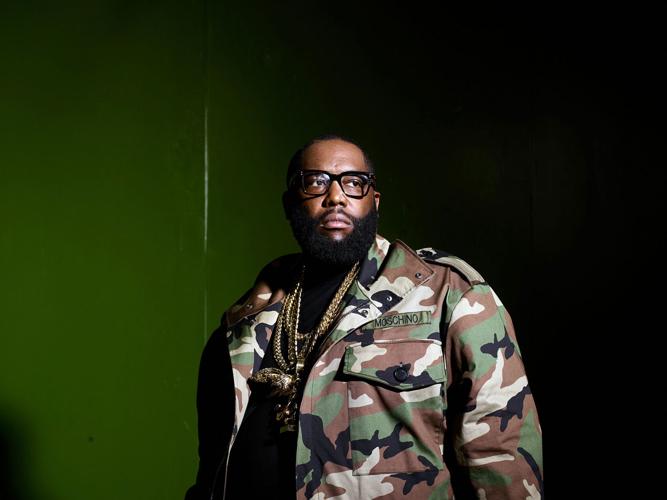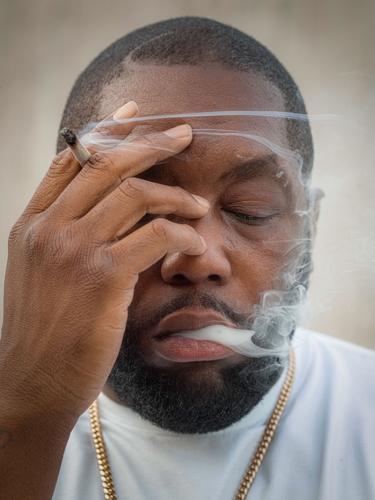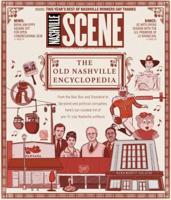
Killer Mike
When Killer Mike hits the Ryman Friday, he’ll be just the second act known primarily for rap to grace the stage, after Wu-Tang Clan in 2019.
“Johnny Cash is coming to the Apollo,” the Atlanta rapper says on a phone call, adding that he’s honored to perform at the Mother Church of Country Music. Mike grew up appreciating outlaw country, and says it helped him realize that working-class communities have a lot in common.
He also shouts out Antioch native and rapper-turned-country-star Jelly Roll.
“I’m a fan because our stories — although culturally and racially different — are eerily similar,” Mike says. “We’re just two working-class kids who made some mistakes, found the women who we love beyond life, made some kids and worked our butts off to … be the best fathers we can be.”
And it’s been hard work. Despite winning a Grammy in 2003 with OutKast for the song “The Whole World,” and Atlanta becoming the hottest hip-hop market in the world, Mike’s career stagnated. He hustled on the indie circuit, and when he and underground rapper-producer El-P connected for 2012’s R.A.P. Music, it was a shot in the arm for both artists.
The album was fiery, and Mike’s Southern swagger was a surprising complement for the New Yorker’s more industrial beats. That was Mike’s last solo album before he and El officially formed the superduo Run the Jewels for a four-album (and counting) run that delights in anarchic, rebellious music. And then, of course, the COVID-19 pandemic hit pause on touring — and recording as well, since the two prefer to work in person.
As the life-threatening disease spread, Mike realized he didn’t want to leave anything unsaid. He had to show the world not just Killer Mike — a “character” who sometimes reveals his personal side — but Michael Render, that smiling boy on the album cover with the devil horns and the halo.
The result is the reflective Michael, his first solo album in 11 years, executive produced by the legendary No I.D. (The Chicagoan also contributes several beats.) Lush Southern sounds, specifically soul and gospel, bring the setting to life as Mike recalls his youth, his loves, his griefs.
The women of Killer Mike’s life play a big role in the album too, especially in the standout “Motherless,” on which the MC mourns his late mother and grandmother, two constant sources of wisdom. He has amazing rap technique — “Two Days” and “Scientists & Engineers” show off relentless flows, “Slummer” his storytelling skills. But on “Motherless,” he keeps it blunt: “My mama dead / My grandmama dead / I miss ’em so much, sometimes, I just cry and hold my head.” Singer Eryn Allen Kane croons bits of the spiritual “Sometimes I Feel like Motherless Child” throughout, as Killer Mike navigates sadness, loneliness, uncertainty and anger.
“It is ultimately me expressing the deepest, darkest and the most hope-filled place in myself,” says Mike. “[Because] this album does not just take you into a brutally honest place that hurts you — it gives you hope.”
The sounds of the Southern Black church give volume to Mike’s “testimonial,” as he calls it, culminating in the sermonic final track “High & Holy.” Mike says Ray Murray, of legendary production crew Organized Noize (OutKast, Curtis Mayfield and more), charged him with maintaining a clear Southern sound. He gets assistance from other fellow Atlantans as well, including an electrifying André 3000 feature on “Scientists & Engineers.”

Killer Mike
Of course, reviewers and interviewers have scrutinized Mike’s politics. Mike has always rapped about injustice and the ills of racism and classism. But off the mic, it gets messy. The MC boosted Democratic Socialist Bernie Sanders’ presidential bid, but also seems to get along with conservative Georgia Gov. Brian Kemp, and conducted a friendly interview with Republican Herschel Walker during his failed Senate bid. (However he also interviewed and endorsed incumbent Sen. Raphael Warnock.)
Michael doesn’t clear up the politics. He shows compassion for addicts — and calls for fair wages — on “Something for Junkies.” But elsewhere, he calls haters broke and lazy while he brags about being a landlord (“Spaceship Views”). He lobs a dated Brokeback Mountain joke on “Talk’n That Shit!” but in interviews claims he’s still an ally to LGBTQ folks.
Mike calls the scrutiny “shameful,” and dismisses it as “personal vendettas based on politics.”
If anything ties his views together, it’s a vision of radical self-sustainability in the Black community: Mike says it’s far more revolutionary to hunt or grow your own food and support local services than rap on a microphone. And his businesses — which he says help provide affordable housing and safe working environments to his community — are his contributions to Atlanta.
“I make no apology,” he says. “If you disagree … that’s fine. But I’m making my great-grandparents proud.”
Those complications might make Michael frustrating at times. But juxtapositions make for compelling art — and once you hit play, Killer Mike is taking you to church.










